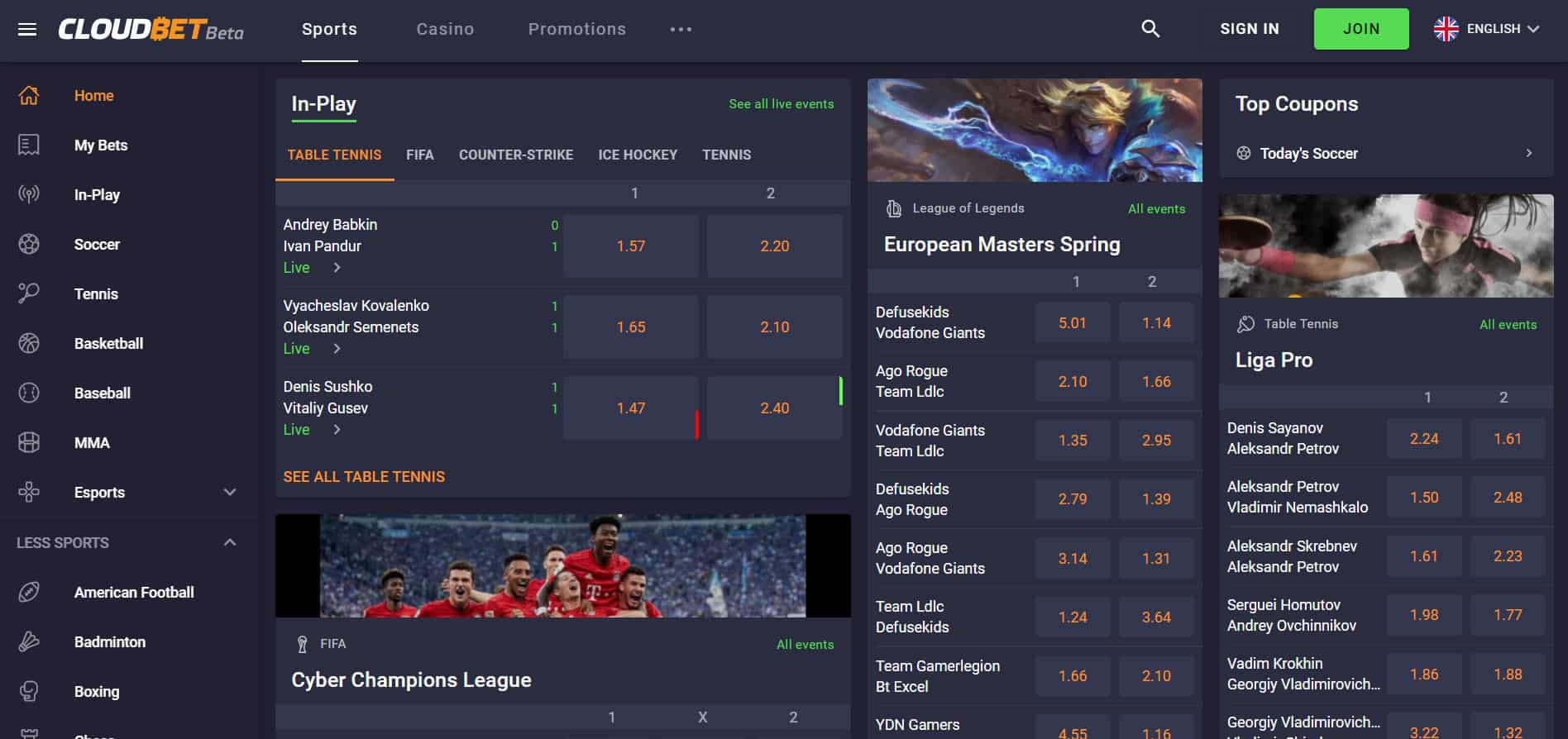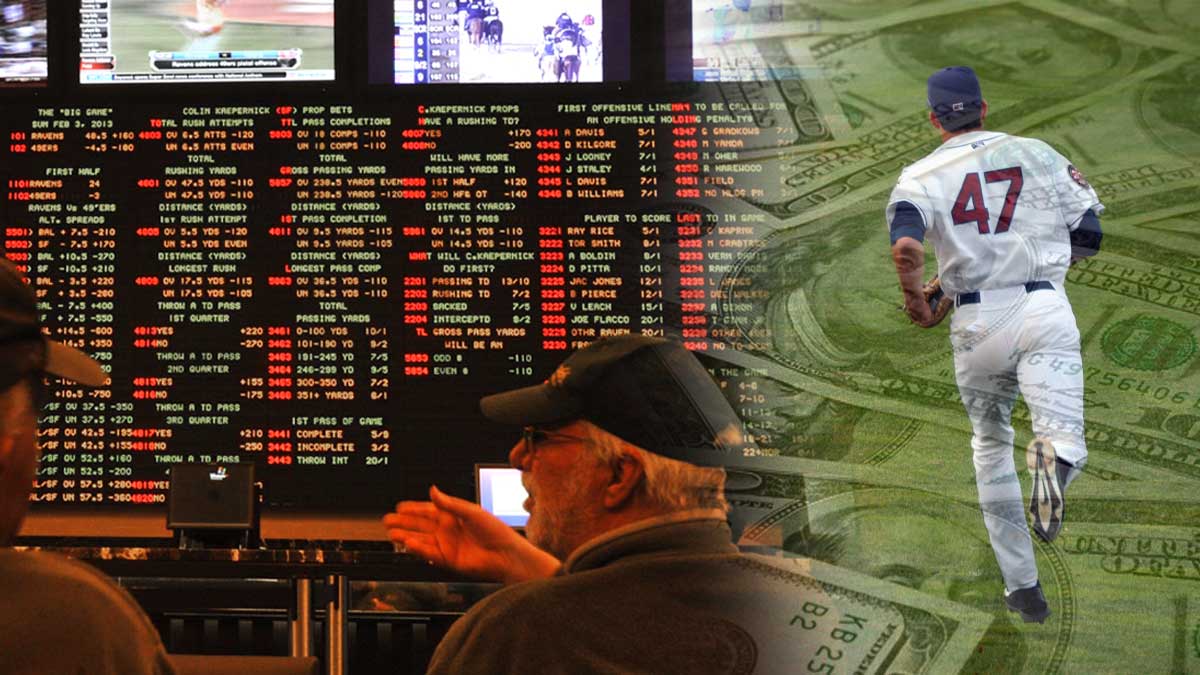New Sports Betting Sites 2020
New sportsbooks offer new players anywhere between 10 to 45% in matching deposit bonuses. A great foot to start on when joining an online Sportsbooks. Freeplay bonuses are a great way to kick off your entry into online sports betting. Use your bonuses betting on sports at any of our NFL Sportsbooks, and other popular selections like NBA. 2 days ago The Washington, D.C. Council passed a new sports betting law in December 2018. It approved legislation allowing its lottery to administer legal sports betting within the boundaries of the federal jurisdiction. A few steps remain before DC sports betting can launch. Don’t expect DC sports betting until early 2020. Sports betting news. Here are the 3 Best Online Betting Sites / Sportsbooks Bovada. Bovada has changed the face of Sports betting online. They have a great sportsbook, racebook and one of the largest online poker rooms for players in the US. Their racebook is only open to North American thoroughbred and harness races. Bovada offers a 50% signup bonus up to. Sports betting on the Internet can be a thrilling experience for anyone. If you want your sports betting experience to go off without a hitch, however, you need to find the right website. Thankfully, the Internet is home to quite a few appropriate sites. Legal sports betting is now available in nearly half of all US states, largely thanks to a pivotal 2018 decision from the US Supreme Court. SCOTUS that year struck down the Professional and Amateur Sports Protection Act (PASPA), paving the way for the expansion of state-regulated betting beyond the borders of Nevada.Once the undisputed capital of the sports.
Legal sports betting is now available in nearly half of all US states, largely thanks to a pivotal 2018 decision from the US Supreme Court.
SCOTUS that year struck down the Professional and Amateur Sports Protection Act (PASPA), paving the way for the expansion of state-regulated betting beyond the borders of Nevada. Once the undisputed capital of the sports gambling world, Las Vegas may eventually yield its title to larger cities like Philadelphia, Chicago, and New York.


The decision by the US to legalize sports betting has also put pressure on other countries to follow suit. Specifically, legal sports betting in Canada is advancing quickly as a direct result of cross-border competition between casinos.
Map of legal US sports betting
So far, 24 US states and the District of Columbia have either passed sports betting legislation or begun regulating the activity under existing laws.
Where is sports betting legal in the US?

Half of the states with legal sports betting also allow online wagering via the web and mobile devices.
- Illinois*
- Indiana
- Iowa*
- Nevada*
- New Hampshire
- Oregon
- Rhode Island*
- Tennessee
- Virginia
* Requires in-person registration
The most recent addition to the list is Michigan, which launched mobile betting on January 22, 2021, following a gradual roll-out of retail betting the preceding year. Virginia beat it out of the gates by a single day, with its first sportsbook starting to take bets on January 21.
Sports betting apps and websites generate upwards of 85% of the total handle in jurisdictions that allow remote account registration. That percentage is substantially smaller across the group of states in which in-person signup is a prerequisite to mobile betting.
See the full breakdown of US sports betting revenue on Legal Sports Report.
US sports betting apps
Below are some of the most popular sports betting apps available in the US. Click through to see reviews for each, including current bonuses and promotions available to new bettors.
- Betway (coming soon)
- PlayUp (coming soon)
Most US sports betting apps are available for both iOS devices (iPhone and iPad) and Android.
Of course, not every app is available in every state with legal sports betting. Access to a given jurisdiction typically requires obtaining a land-based gambling license or partnering with a property that already has one.
These market-access deals are the primary vehicle for expansion, with most smaller casinos choosing to outsource their sports gambling operations.
US sports betting FAQ
Here are answers to some common questions about legal US sports betting.
Is sports betting legal in the US?
Thanks to the Supreme Court’s decision to repeal PASPA in 2018, there is no longer any federal law that prohibits wagering on sports. Legal sports betting has subsequently expanded into more than 20 US states, with nearly every other contemplating legislation.
How old do I have to be to bet on sports in the US?
Policymakers are responsible for determining the minimum age for legal sports betting in each state, ranging from 18 in some to 21 in most. Check with your local gaming regulator for the rules where you are.
Where can I bet online in the US?
About half of states with regulated sports betting also allow mobile wagering. See the upper section of this page for the full list of states with legal online sports betting.
How is sports betting taxed in the US?
Sports betting is taxed at the federal, state, and in some cases local level.
State taxes vary across the map, ranging from 6.75% in some up to a whopping 34% in Pennsylvania. Laws in some places also direct a share of revenue to local jurisdictions, such as the 2% that goes to PA counties with casinos. In some others, like New Jersey, retail and online betting are taxed at separate rates.

States in which the lottery operates sports betting typically employ a more lopsided revenue-sharing structure. The lotto keeps about half of all revenue in this group of states — Delaware, New Hampshire, Oregon, Rhode Island — leaving the other half to be shared across the entire supply chain.
Uncle Sam also gets his cut of the proceeds, of course. Congress long ago installed a federal excise tax on sports betting amounting to 0.25% of the total amount wagered, and it remains on the books today.
Bettors are additionally responsible for paying standard income tax on their sports betting profits.
Are offshore sports betting sites legal in the US?
No. Federal law prohibits gambling sites based in foreign countries from serving US customers, though a lack of enforcement has allowed these offshore sportsbooks to flourish.
Legality aside, operators like Bovada and MyBookie are not licensed or regulated by any reputable gaming authority.
Is it legal to bet on college sports?
The NCAA and some of its member universities argue that collegiate betting carries too many integrity risks to be widely available, and the response from lawmakers has been mixed.
New York and New Jersey, for instance, chose to exclude betting on in-state college teams or events. Iowa does allow bets on in-state teams, but not on props involving individual players. In Oregon, all college sports are off the board.
That said, most states with legal sports betting broadly allow action on most college sports.
Is it legal to bet on esports and mind sports?
Most sports betting laws in the US neither explicitly include nor exclude competitive activities that don’t meet the traditional definition of a “sport,” such as esports and strategy games like chess.
Nevada was the first state to allow any form of esports betting, approving events on a case-by-case basis.
New Jersey regulators additionally allowed sportsbooks to take wagers on the League of Legends World Championship in 2019, while lawmakers in the state have for two consecutive years considered a bill that would expressly authorize such markets.
Indiana, on the other hand, does not allow any esports betting whatsoever. West Virginia has a partial ban that only allows wagers on esports events in which all participants are adults.
In most other states, the issue remains legislatively unsettled.
Is it legal to bet on US elections?
While there is no federal law governing US election betting, it is unlikely any state will allow trading on political markets in the near term. That is, of course, ignoring the few minutes in 2020 during which officials in West Virginia believed such wagers were legal.

The Commodity Futures Trading Commission does not permit election markets, in part because such speculation is prohibited under state law in many jurisdictions — including WV. Political wagering additionally raises concerns about the manipulation of the democratic process and is generally incompatible with public policy.
There are two exceptions; the Iowa Electronic Markets and the website PredictIt both operate as educational endeavors under No Action letters from the CFTC.
What are integrity fees?
The concept of the integrity fee was one of the first points of contention to emerge following the fall of PASPA.
Beginning shortly thereafter, professional leagues (led by the NBA and MLB) began lobbying lawmakers for direct inclusion in their sports betting legislation. The industry, they argued, could not exist without their proprietary games.
The leagues’ request for compensation initially took the form of an integrity fee amounting to 1% of all wagers, an ask that was later reduced to .25%. Such a fee is not only legally unfounded but also untenable for an industry that operates on such tight margins.
Lawmakers in every relevant state rejected the notion of direct payments to leagues, so lobbyists instead pivoted toward monetizing official data by legislative mandate.
What is official league data?
Official league data refers to the set of statistics complied directly by a sports governing body or, more commonly, one or more authorized third-party collectors. The two biggest — Genius Sports and Sportradar — are responsible for distributing this data on behalf all major sports leagues.
In the eyes of the courts, most sports data is legally in the public domain and can not be copyrighted.
Regardless, data has become the subject of significant chatter amid the expansion of regulated sports betting in the US as leagues lobby for mandates that would prohibit bookmakers from using unofficial sources. So far, only three states have imposed any sort of limited data mandate — Illinois, Michigan, and Tennessee.
- Ohio sports betting legislation failed to pass in the 2020 session as the Ohio Legislature adjourned on Tuesday.
- A sports wagering industry in Ohio shows revenue projections in the million-dollar range annually.
- It is expected that similar bill proposals to legalize sportsbooks in the Buckeye State will be seen in the 2021 session.
COLUMBUS, Ohio -Try as they might, Ohio sports betting legislation did not receive passage with the 2020 legislative session coming to a close on Tuesday.
Sports gaming was closer than it’s ever been in the Buckeye State to becoming legal but with COVID-19 turning the world upside down, there were over a hundred other bills that needed to be addressed before the Ohio Legislature adjourned for the year and Sub. Senate Bill 111 didn’t make the cut.
The proposal was a combined effort of both the House and Senate sponsors that have advocated to make gambling on sporting events legal and was assumed to be the best compromise as it was adjusted to ensure everyone’s voice was heard.
The Status Of Ohio’s Legal Sports Betting Effort This Session
Sponsor to Sub. Senate Bill 111Senator John Eklund had a positive outlook for a sports gaming industry to become legal in Ohio for 2020. According to Eklund, there is no actual timeframe for something like this to get done in terms of approvals.
While some states may drag out the process, in actuality, once the House and Senate are both aware of the bill’s general makeup enough like they were with OH SB 111, a green light to the desk of the Governor (in this case, Governor Mike DeWine) could be done in a day.
Pending any call for a special hearing which is unlikely in the final days of the year, it appears that Sub. Senate Bill 111 did not get that one day it really needed on the House and Senate floors for approvals. The bill will officially die at the end of the year but can already be considered dead because the regular session is over.
As for Eklund, his term has also ended so he and his bill will no longer be a part of the Ohio Legislature come 2021.
What’s Next In 2021 For The Buckeye State?
Of the four main sponsors for sports wagering legislation in Ohio, only one will be back in 2021,Representative Brigid Kelly. It is expected that Kelly will continue on with her work to legalize sports betting in a way that is similar to what the end result of OH SB 111’s draft turned into.
She and her fellow sponsors worked endless hours to get a proper structure for a legal sportsbook landscape in Ohio that would include both retail and mobile sports wagering.
It is likely that should she be on any team to make sports gaming legal in the Buckeye State or sponsor another bill herself that it will very much be a mirror image of Sub. Senate Bill 111 that in the end didn’t receive enough attention because had it, Ohio could have made sportsbooks legal in the new year.
Although Ohio sports betting wasn’t legalized in 2020, the efforts of lawmakers have set the table for passage, as the Ohio Legislature has been fully introduced to the pros and cons of the industry already and that’s half the battle.
New Sports Betting Sites 2020
News tags: Brigid Kelly COVID-19 John Eklund Mike DeWine OH SB 111 Ohio Sub. Senate Bill 111 The Ohio Legislature
Sports Betting
Christina has been writing for as long as she can remember and does dedicated research on the newly regulated sports betting market. She comes from a family of sports lovers that engage in friendly bets from time to time. During the winter months, you can find Christina baking cookies and beating the entire staff at Mario Kart…the N64 version of course.